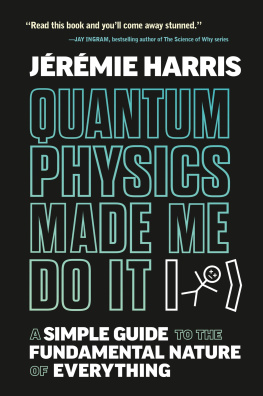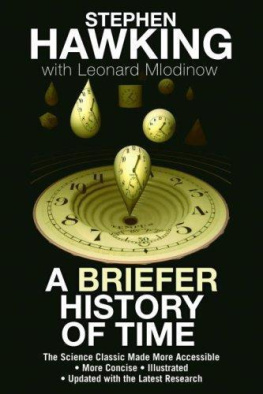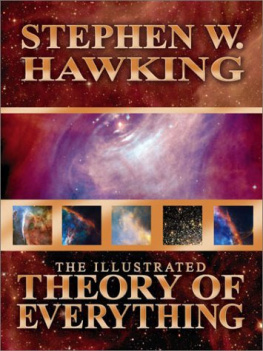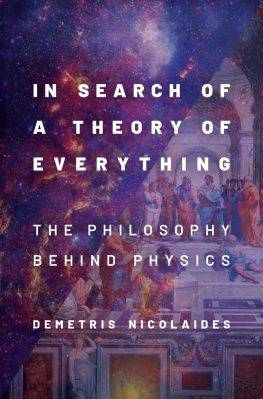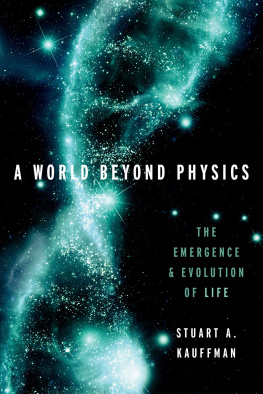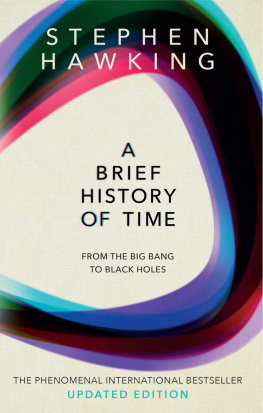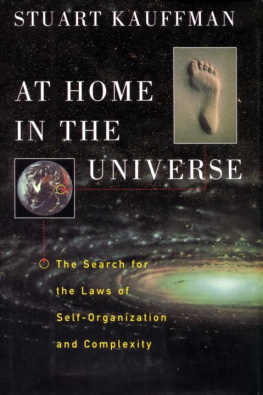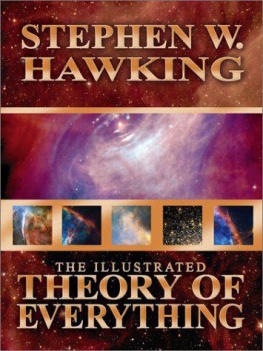Humanity in a Creative Universe
Humanity in a Creative Universe

STUART A. KAUFFMAN


Oxford University Press is a department of the University of Oxford. It furthers the Universitys objective of excellence in research, scholarship, and education by publishing worldwide. Oxford is a registered trade mark of Oxford University Press in the UK and certain other countries.
Published in the United States of America by Oxford University Press
198 Madison Avenue, New York, NY 10016, United States of America.
Oxford University Press 2016
First Edition published in 2016
All rights reserved. No part of this publication may be reproduced, stored in a retrieval system, or transmitted, in any form or by any means, without the prior permission in writing of Oxford University Press, or as expressly permitted by law, by license, or under terms agreed with the appropriate reproduction rights organization. Inquiries concerning reproduction outside the scope of the above should be sent to the Rights Department, Oxford University Press, at the address above.
You must not circulate this work in any other form and you must impose this same condition on any acquirer.
Library of Congress Cataloging-in-Publication Data
Names: Kauffman, Stuart A.
Title: Humanity in a creative universe / Stuart A. Kauffman.
Description: New York, NY : Oxford University Press, 2016.|Includes bibliographical references.
Identifiers: LCCN 2015030651|ISBN 9780199390458 | eISBN 9780199390472
Subjects: LCSH: Evolutionary developmental biology.|Evolution (Biology)
Classification: LCC QH492 .K38 2016|DDC 576.8dc23 LC record available at http://lccn.loc.gov/2015030651
To Elizabeth Kauffman, In Memoriam, Katherine P. Kauffman, Ethan Kauffman, John Beebe.
Contents
AT AGE SEVENTY-FIVE, I have been a scientist for some time. I have so many to thank for inspiration and friendship over so many years, mentors, colleagues, and friends, who have shaped me and this book. In no special order I thank my mentors, Hal Waddington, Warren McCulloch, and Jack Cowan, and lifelong colleague and friend, Brian Goodwin. I thank Leon Glass, Bill Macready, Ricard Sol, Eors Szathamary, Gunter von Kiedrowski, Max Aldana, Ilya Shmulevich, Sui Huang, Dennis Salahub, Leroy Hood, Philip Anderson, Kenneth Arrow, Colin Hill, Mike Brown, Nancy Kopell, Stephen Grossberg, Wojeich Zurek, Kalevi Kull, Terry Deacon, Luigi Luisi, David Daemer, Kepa Mirazo, and many others. This book owes special thanks to Giuseppe Longo, Gabor Vattay, Lee Smolin, Stanley Bates, Richard Melmon, and my wife, Katherine P. Kauffman. The weft of this book reflects so much I have learned from all the above. Undoubtedly the mistakes and ideas that may not even be wrong are mine alone. I thank Oxford University Press and Jeremy Lewis, my editor.
Stuart Kauffman
Crane Island, Puget Sound
July 10, 2015
Science alone will paint no metaphor of the face of God.
ALAN BEEM, age 26
THE OVERARCHING AIM of this book is civilizational, far beyond the science and philosophy about which I write. Human culture and the ways we humans are in the world have evolved profoundly since we were hunter-gatherers and Cro Magnon painted aurochs on the cave walls of Southern France and Northern Spain and then followed the great herds north as the last Ice Age receded. With agriculture, the accumulation of wealth became possible, and the great early civilizations of Egypt, Mesopotamia, and China arose. With the accumulation of wealth arose vast differences in wealth and power for the first time in human history. Cuneiform writing was invented in the West at about that time, as were other forms. But it is the Axial Age, more than a thousand years later, that must rivet us. In the middle of the first millennium B.C.E., across much of the world, what we now call our classics arose, and with them a new phase in the becoming of culture and human mind: the Hebrew prophets, Amos, Isaiah, and Jeremiah; the texts of Plato and Aristotle; the Analects of Confucius; the Daodejing; the Bhagavad-Gita; and the teachings of the Buddha in the Pali Canon. The Axial Age was named by Karl Jaspers shortly after World War II, who described this period as a fulcrum, an Axis, around which, across much of the globe, our sense of ourselves changed. In brief, early religions were about our welfare, good hunting, and good weather, appeasing and praying to local gods for intervention. With the Axial Age, for the first time, humans began to seek something higher, the ethical for Confucius, the Dao, Buddha and Enlightenment, and Plato: We seek the Good, the True, and the Beautiful. Plato, in the allegory of the cave, never defines The Good. It is as the sun, seen when we turn from facing the shadows cast on the cave wall, to look at it, but staring can blind us.
In diverse ways, sum Bellah, Joas, and other contributors to this book (Bellah and Joas 2012), humans sought transcendence, thus seeing themselves beyond the human self and group welfare of early religions.
In the West, this became the Hebraic-Hellenic roots of our common civilization. The Greeks sought universals, the ancient Jews the specificity of their lives with their God and history.
How we see the world profoundly shapes how we see ourselves, and with it, what we are and become. The Ancient world of Greco-Roman thought transformed at least with Constantine to Christianity in the West and eight or so centuries of the Churchs view of God and Man and our humanity. The discovery of an intact text of De Rerum Natura by Lucretius in the 1300s unleashed a rediscovery of the Greco-Roman world and within a century, the Renaissance, surging beyond the Churchs view of our humanity to give forth Da Vincis Mona Lisa and Michelangelos David. With these, came a soaring of our individual humanity. Two centuries later in the West, Descartes unleashed the scientific objective world view, culminating somewhat more than a century later with Newton and the creation of classical physics. Weber has written that with Newton we became disenchanted and entered modernity. He was right, from Newton to the Enlightenment, the Age of Reason, where all could be, in principle, known and mastered, mystery gone, to the Industrial Revolution, to modernity and the diversities of postmodernity.
The transcendence of the Axial Age is largely lost in the struggle between the two Magesteria of Stephen Jay Gould, religion and science. Science has largely won. Our spirituality is submerged.
To borrow the superb phrase of Thomas Cahill, historian, we are at a hinge of history. Our thirty or more civilizations across the globe are weaving together, in part driven by globalization of commerce and of communication. For the first time in history we have the technological means to assure an adequate standard of living for all, or most of us, despite grotesque inequality in current wealth distribution. We live on a finite planet we despoil in the name of forever economic growth. Yet we hunger, and read the Romantic poets seeking re-enchantment. In addition to Keats, try Dylan Thomas if you have not tasted.
Are we poised, as some of the authors in Bellah and Joass book argue, for a new Axial Age? If at a hinge of history, what will we become? Can we see ourselves anew in the world? And as a consequence become anew?
The fullness of our human lives in a creative universe and the woven civilizations across the globe that we co-create is therefore the central issue of this book. With this, I hope to be at least one voice that may unleash an unprestatable becoming of a new Axial Age. I hope to be at least one voice that may help unleash us where we are fettered by lingering good science that blinkers us, from Newton to Darwin to Adam Smith, to John Locke, superb all, whose work laid the foundations of modernity and postmodernity in its diverse guises and sequelae, and whose work constitutes what I will call the mythic structure of modernity. I believe we need a new mythic framework. The aim of this book is to seek such a new mythic framework that can guide us, even as we co-create what we cannot prestate and then flow into the very Adjacent Possibilities we helped to make.


